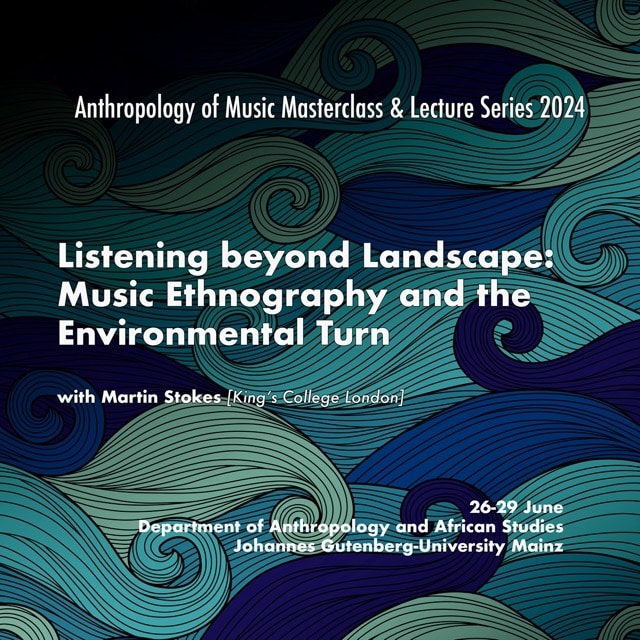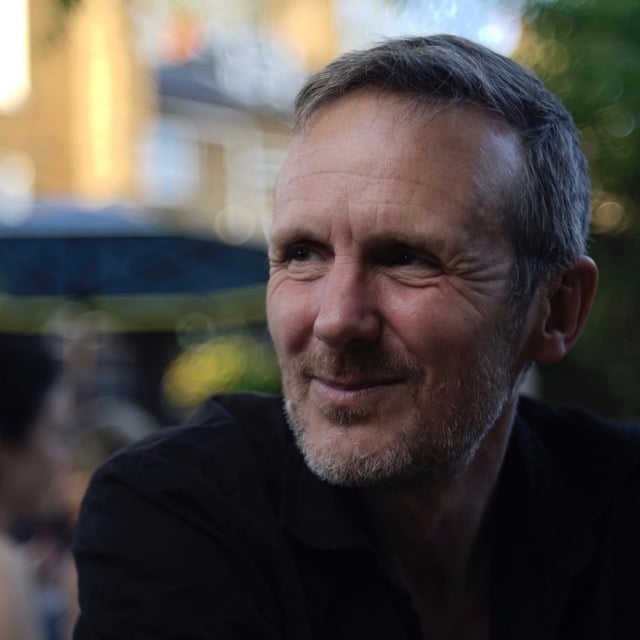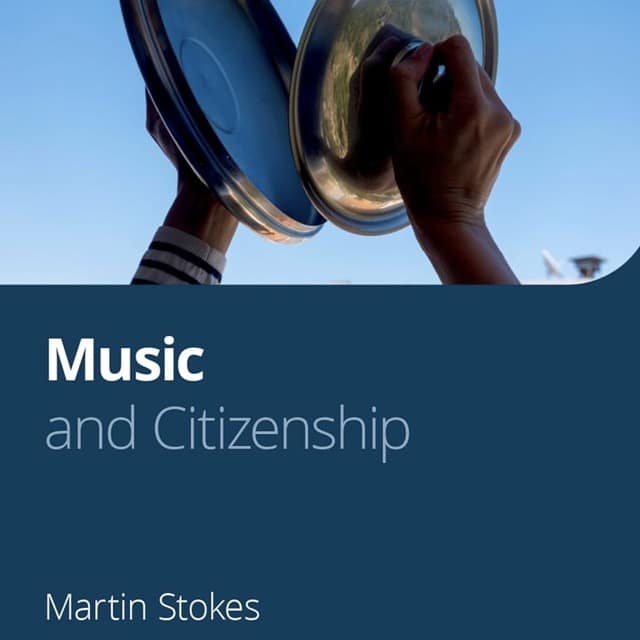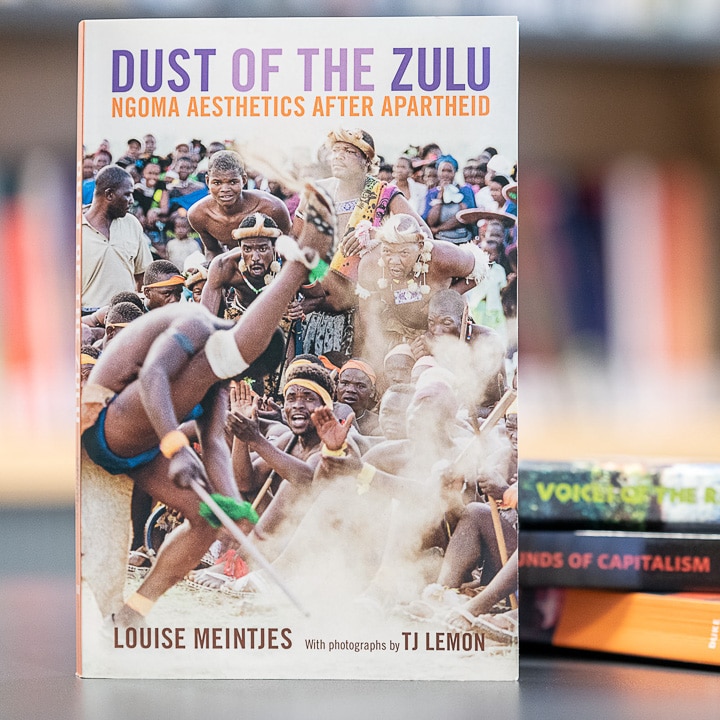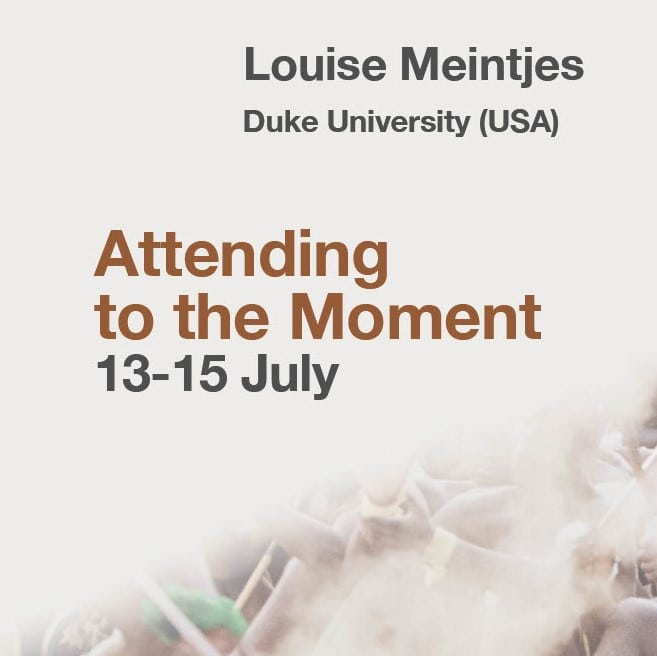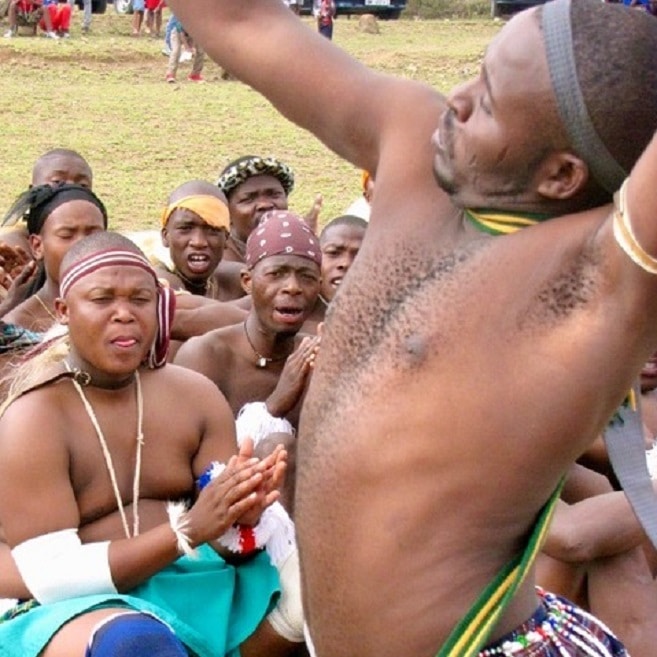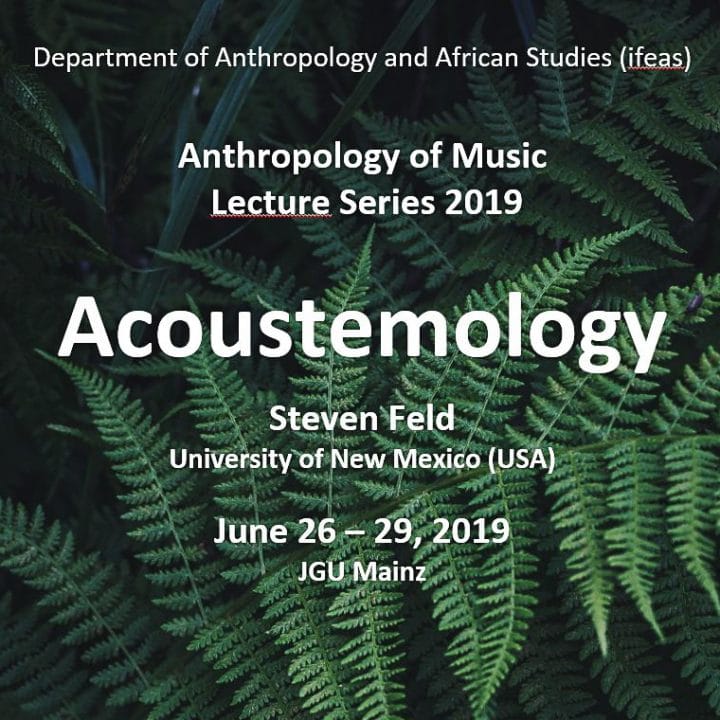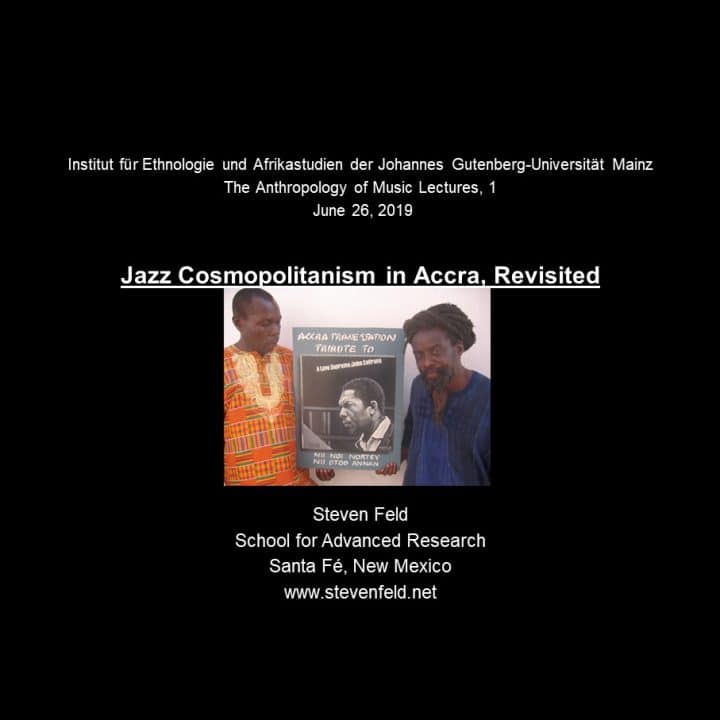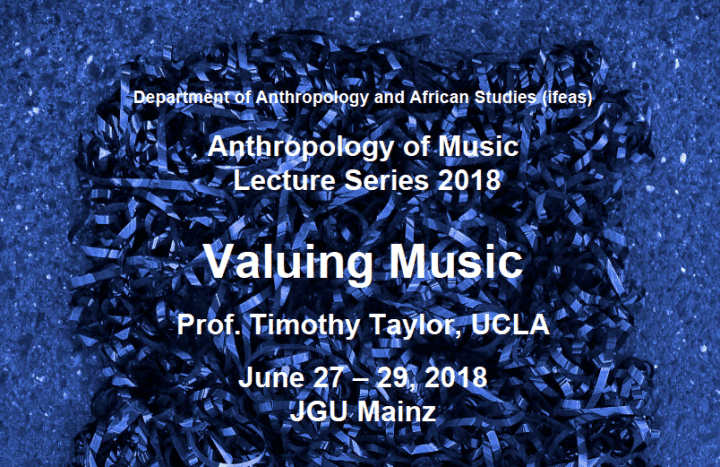Anthropology of Music Lecture Series and Master Class
The “Anthropology of Music Lecture Series and Master Class” (AoM-LS/MC) combines a series of three public lectures held by one of the field’s most designated experts with an international summer school designed for young researchers from anthropology/ethnomusicology and related disciplines to present their works.
While the main lectures outline the subject focus and provide a theoretical framework of the respective AoM-LS/MC, the master class allows participants to discuss their ethnographic materials with the key expert as well as six highly experienced discussants from both (ethno)musicology and anthropology. Taking part in the AoM-LS/MC thus provides participants with the opportunity to rethink their work in the light of promising discussions and trends, and to jointly reflect on the current state of anthropological engagements with music and sound in general.
While the main lectures outline the subject focus and provide a theoretical framework of the respective AoM-LS/MC, the master class allows participants to discuss their ethnographic materials with the key expert as well as six highly experienced discussants from both (ethno)musicology and anthropology. Taking part in the AoM-LS/MC thus provides participants with the opportunity to rethink their work in the light of promising discussions and trends, and to jointly reflect on the current state of anthropological engagements with music and sound in general.
The Lecture Series
Every other year we invite an outstanding and renowned scholar in the anthropology of music to give three lectures on the state of the art of his or her ethnographic engagements and theoretical development. The lectures, about 60 min. each, take place in the evenings of the “master class” on three subsequent days and are generally open to the wider public.
The Master Class
The master class consists of different thematic workshops, each of which addresses another aspect of the topic at large. Workshops generally consist of two sessions, a presentation session and a discussions session. During the latter, expert discussants from both musicology and anthropology reflect on the presentations and provide ideas for further discussion. To ensure an intense exchange of ideas, only 12-15 participants may take part in the master class. Extended coffee breaks, joint lunches as well as evening receptions and restaurant visits provide the informal spaces needed to engage in ongoing discussions and exchange.
Our Goals
With our Anthropology of Music Lecture Series and Master Class, we aim at...
- introducing PhD students and postdocs to cutting edge theoretical debate, both concerning the study of music and social/cultural theory in general;
- encouraging re-examinations of ethnographic materials along new lines of inquiry and attempts to fuse ethnographic research on music with advanced theoretical reflection;
- relating empirical findings to broader societal issues;
- reflecting on similarities and differences of (ethno)musicological and anthropological approaches to the study of music and sound;
- facilitating dialogue between national and international students in the anthropology of music.
How to apply
The Master Class is open for advanced doctoral students and postdoc researchers from the fields of social and cultural anthropology, ethnomusicology, and related disciplines. We explicitly support applicants from the global South. Roughly 6 months before each AoM-LS/MC, we publish a call for paper that we will disseminate as widely as possible. This call introduces the overall topic of the lecture series and asks applicants to provide a short outline of their general research project (300 words), a presentation title as well as a short abstract of their presentation (again 300 words). It is of major importance that, in their application, candidates relate their ethnographic work to the general topic at hand. Apart from the general level of sophistication, we will mainly choose candidates according to the relevance of their contribution to the overall topic of the respective AoM-LS/MC.

AoM-LS/MC 2024
AoM-LS/MC 2022
AoM-LS/MC 2019
The AoM-LS/MC 2019 explored music and sound as socially situated epistemologies. Under the guidance of Steven Feld, without doubt one of the field’s most original thinker, more than twenty presenters and expert discussants from three continents dug deep into “acoustemologies” from the Mascarene islands, African forests, Istanbul urban quarters or Czech prison cells, trying to read the sound of of labor, egalitarianism, racialized histories or political dissent. Three lectures by Steve himself on Jazz, Nostalgia and Heat, as well as the screening of his latest documentary on the voices of the Bosavi rainforest once more demonstrated the huge potential of theory-inspired engagements with ethnographies of music and sound. Especially his third lecture on "Hearing Heat", in which cicadas figured prominently (and that he delivered at a room temperature of about 30°C) created an unforgettable atmosphere that proved, in form as well as content, the enormous evocative power of sensual(ized) knowledge.
AoM-LS/MC 2018
The first AoM-LS/MC took place in June 2018 and aimed to shed light on how (social) values and (capitalist) value relate. Prof. Timothy Taylor from UCLA, leading exponent of both the study of global pop and music production under capitalist conditions, stood to the task and laid bare, in three exciting lectures, todays inescapable entanglement of capitalist and non-capitalist dimensions of musical practice. A musicologist and ethnomusicologist by education and institution, but also a cultural anthropologist by marriage (his words) and certainly by heart, he perfectly demonstrated the need to relate ethnographic detail with historical context and theoretical rigor. In doing so, he paved the way for sophisticated reflections on the capitalist or “paracapitalist” nature of Nigerian funeral music, Arab sounds in Israel, Athens anti-capitalist jazz neighborhoods or the recent coming back of the cassette tape. All in all, thirteen participants on postgrad and postdoc levels from Europe, the Middle East, Asia, Africa and the Americas presented exciting work on the topic, while ten expert discussants from the fields of both (ethno)musicology and anthropology helped them to historically situate their findings and further their critical thinking.
Timothy Taylor has allowed us to not only videotape his presentations, but also to provide the recordings online to a wider public, so we can invite you to listen to the lectures yourself. You find the videos on the respective pages – enjoy!
Timothy Taylor has allowed us to not only videotape his presentations, but also to provide the recordings online to a wider public, so we can invite you to listen to the lectures yourself. You find the videos on the respective pages – enjoy!
